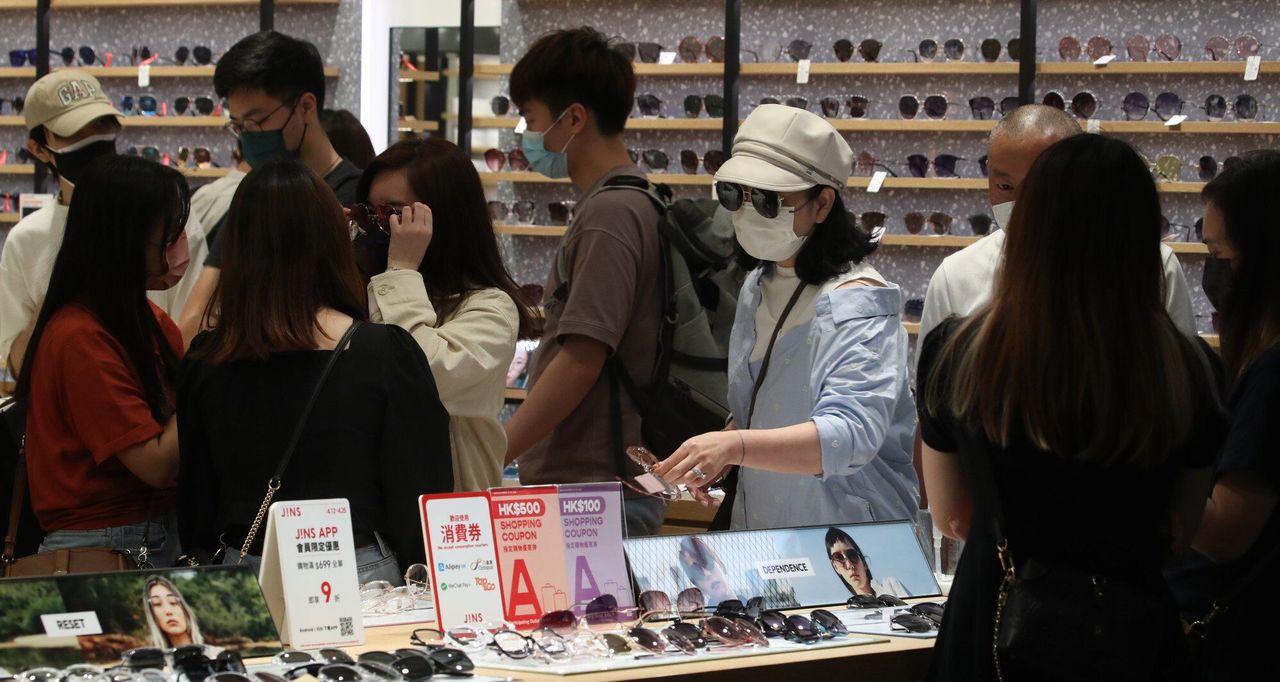Hong Kong News

Economy set to rebound if Covid situation stabilises: Hong Kong finance chief
Hong Kong’s economy is set to rebound from the negative growth it recorded in the first quarter of this year if the coronavirus situation continues to improve, the city’s finance chief has said.
Financial Secretary Paul Chan Mo-po on Sunday also highlighted the city’s efforts to safeguard national security by improving the ability of financial markets to absorb volatility amid an ever-changing environment.
He made the remarks a day after Hong Kong’s daily Covid-19 infections fell below 800 for the first time in nine weeks, ahead of the government’s plans to relax stringent social-distancing curbs on April 21.
“What we can be certain about is that the local economy will gradually rebound as long as the coronavirus situation becomes stable,” he said in his official blog.
“If this trend continues and we head towards the dynamic zero-Covid status, we will have a better business environment in the second quarter which will help the economy get rid of the negative growth in the first quarter.”
 Crowds of shoppers in Tsim Sha Tsui on Friday.
Crowds of shoppers in Tsim Sha Tsui on Friday.
In 2021, Hong Kong’s overall economy experienced a visible recovery with growth of 6.4 per cent, but it withered under a fifth wave of coronavirus infections in the first quarter of the year.
In March, Chan described the first quarter as being under “wind and rain”, with retail sales in February falling for the first time in a year and growth in exports slowing down.
He attributed the economic downturn to a variety of internal and external factors, including the current outbreak, tensions in international geopolitics, China-US relations and rising inflation.
Chan predicted in his annual budget speech in March that the economy would perform better in the second half of this year and achieve growth of 2 to 3.5 per cent for 2022.
In his blog, the finance minister noted that residents became more eager to head outdoors and spend the latest round of consumer vouchers on either necessities or leisure activities during the long Easter holiday.
But he warned that an effective epidemic prevention and control mechanism would be necessary to cope with a future outbreak.
Terence Chong Tai-leung, an economics professor at the Chinese University of Hong Kong, agreed with Chan on the anticipated economic recovery in the retail and finance sectors following the relaxation of social-distancing measures, noting the city had suffered from the closure of shops and restaurants.
But he cautioned that the impact on re-exports might still cause uncertainty overall due to lockdowns in Shanghai and Shenzhen under China’s dynamic zero-Covid strategy.
“The government needs to open up Hong Kong. With shops reopening and more flights being allowed to land, we will see a big bounce back, similar to last year.”
Chan said that Hong Kong, as a small and open economy, was strengthening the security of its own economic system to better safeguard national security in a “complicated, ever-changing and challenging” external environment.
Two days after National Security Education Day on April 15, he detailed efforts made by authorities to enhance economic security, including stepping up financial markets’ ability to absorb volatility triggered by external factors, speeding up the implementation of multilateral trade agreements and enhancing the city’s competitiveness with technological development.











